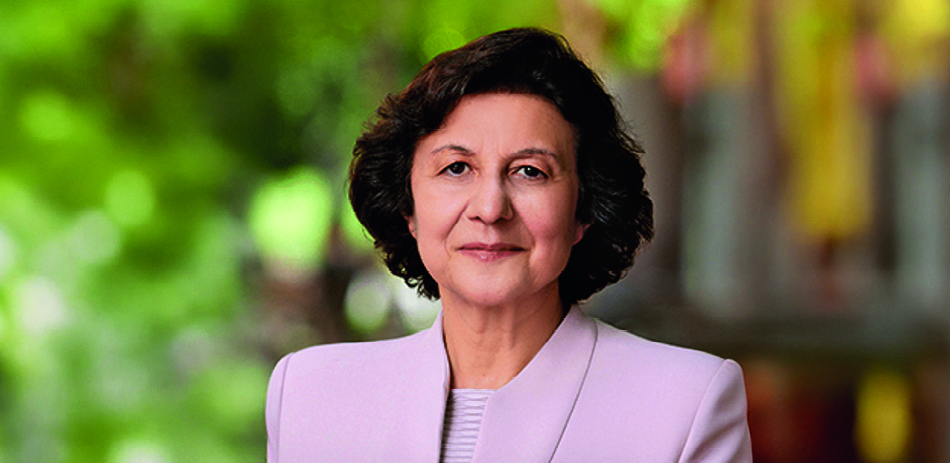Watch the video below about the EFG Gamma Foundation conference on the longevity era.
Private banking is a people business
News & interviews
3 min read
Longevity literacy is key for retirement readiness – interview with Annamaria Lusardi
Professor Annamaria Lusardi from the Stanford Institute for Economic Policy Research is renowned for her research into longevity literacy and financial decision-making. At the EFG Gamma Foundation conference on the longevity era in June 2025, she spoke about the importance of financial education and why we need to reimagine the future.

Marketing & Communications
What can you tell us about the changes we are witnessing in terms of life expectancy?
We are facing a longevity revolution. Looking specifically at the US – the focus of our research at Stanford – we see that life expectancy has risen by 17 years since social security was introduced around nine decades ago. The critical challenge this brings – but perhaps also the greatest opportunity – is to ensure that this longevity trend is accompanied by an increase in the quality of life.
How should governments and individuals respond to this longevity trend?
At Standford, we view this change in longevity as “The New Map of Life”. Since many of the people born today may live to be 100, we need to think very differently about how life is structured and to adapt existing policies, norms and social institutions, which were geared towards shorter lifespans. This includes defining new pathways for how individuals work and save money to allow them to build financial security for life. In particular, the increase in life expectancy calls for a rethink on retirement provision. People need to be more proactive when planning how they will fund their retirement in order to enjoy a good, long and healthy life in their old age.
What is “longevity literacy” and why is it so important?
“Longevity literacy” can be defined as the knowledge people have about how long they are likely to live in retirement. This information is vital for effective retirement planning, since individuals without longevity literacy tend to underestimate their life expectancy and to undersave and underprepare for this phase of life. The result is that they may begin their retirement with less financial security and confidence.
So both financial literacy and longevity literacy contribute to financial resilience and retirement readiness?
Yes, exactly. As part of our research 1, we performed a check-up to see how much people know about the different factors that contribute to financial wellbeing in retirement; we call this “retirement fluency”. Alongside knowledge about life expectancy, it includes an understanding of social security benefits, of occupational retirement savings and the need to secure lifetime income, among other financial considerations. We found that 63% of adults with higher levels of “retirement fluency” have already calculated how much they need to save and 85% already regularly save for their retirement.
Longevity creates certain challenges, e.g. for social security and healthcare systems, but you also describe it as an opportunity.
I like to think of longevity as a gift − a positive development that brings with it many opportunities. There are opportunities for the financial industry to offer products and expertise that are better aligned with the new map of life I mentioned. There are opportunities for employers and financial advisors to help employees prepare for a longer and healthier life. There are opportunities for the public sector to inform citizens about the benefits available to them. And finally, there are opportunities for the education system to prepare the younger generation to navigate a very different world. To benefit from the gift of longevity, we need to reimagine the future.
You are the Director of the Stanford Initiative for Financial Decision-Making (IFDM). What can you tellus about its purpose?
We recently launched IFDM with the goal of transforming personal finance education – bringing together research, technology and policy. Financial literacy and good financial decision-making abilities empower us to build greater financial resilience. Our aim is to prepare the younger generation for the new map of life and to help them be “longevity ready”.
You have also played an active role in promoting financial education in your home country of Italy.
Yes, I served as the Director of the Italian Financial Education Committee for six years, starting from 2017. The Committee was responsible for developing a national strategy for financial literacy in Italy. The strategy was designed to foster and coordinate financial education programmes. In 2024, the Italian Parliament passed a law introducing financial literacy into the school curriculum for students as part of their civic education. It was an important milestone and a good investment for the future. I am proud of the work the Committee was able to do.
This interview was published in the 2/2025 edition of EFG’s InTalks magazine.
EFG Gamma Foundation
The EFG Gamma Foundation fosters knowledge building, research and discussions around a range of current themes. Each year, it holds a summer conference at the Istituto Svizzero in Rome, in the grounds of the stunning Villa Maraini (pictured here). The 2025 event was dedicated to the theme “The longevity era: Building resilient economies and thriving societies” and featured an impressive line-up of speakers.

About
Professor Annamaria Lusardi is Senior Fellow at the Stanford Institute for Economic Policy Research, Director of the Initiative for Financial Decision- Making (IFDM) and Professor of Finance at the Stanford Graduate School of Business. She has taught at renowned institutions including The George Washington University, Dartmouth College, the University of Chicago and Columbia University. One of the most cited authors on financial literacy, she holds a PhD in Economics from Princeton University.
